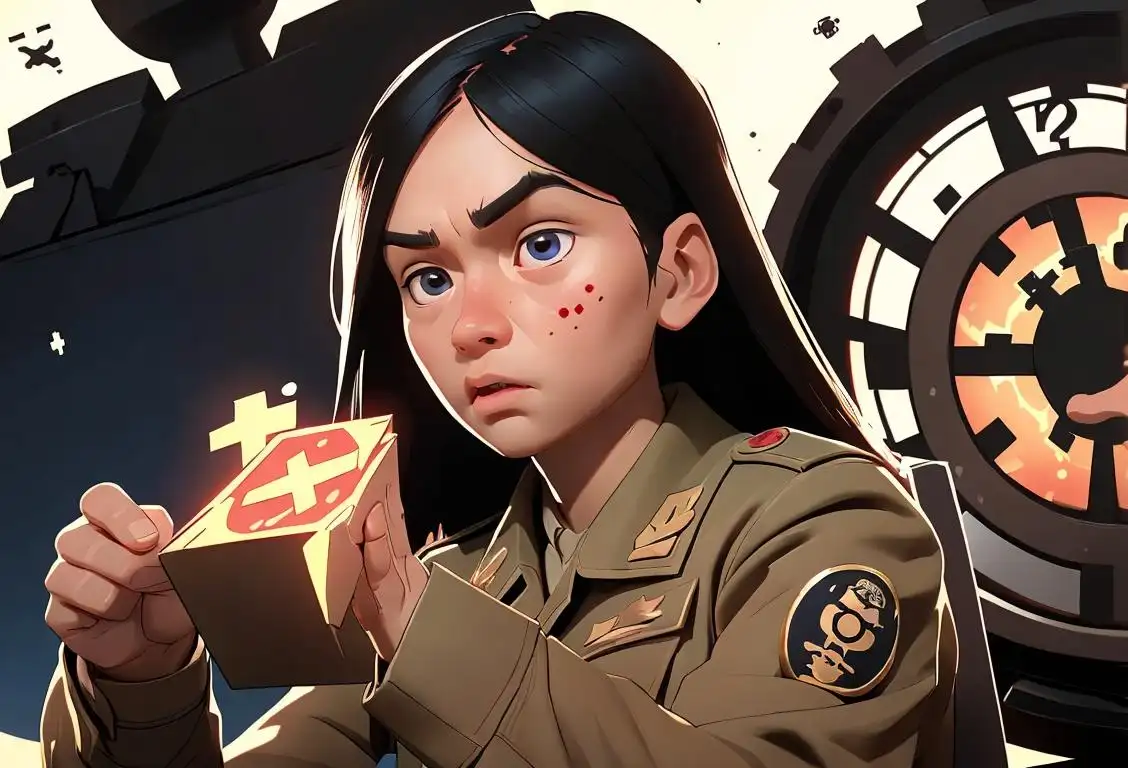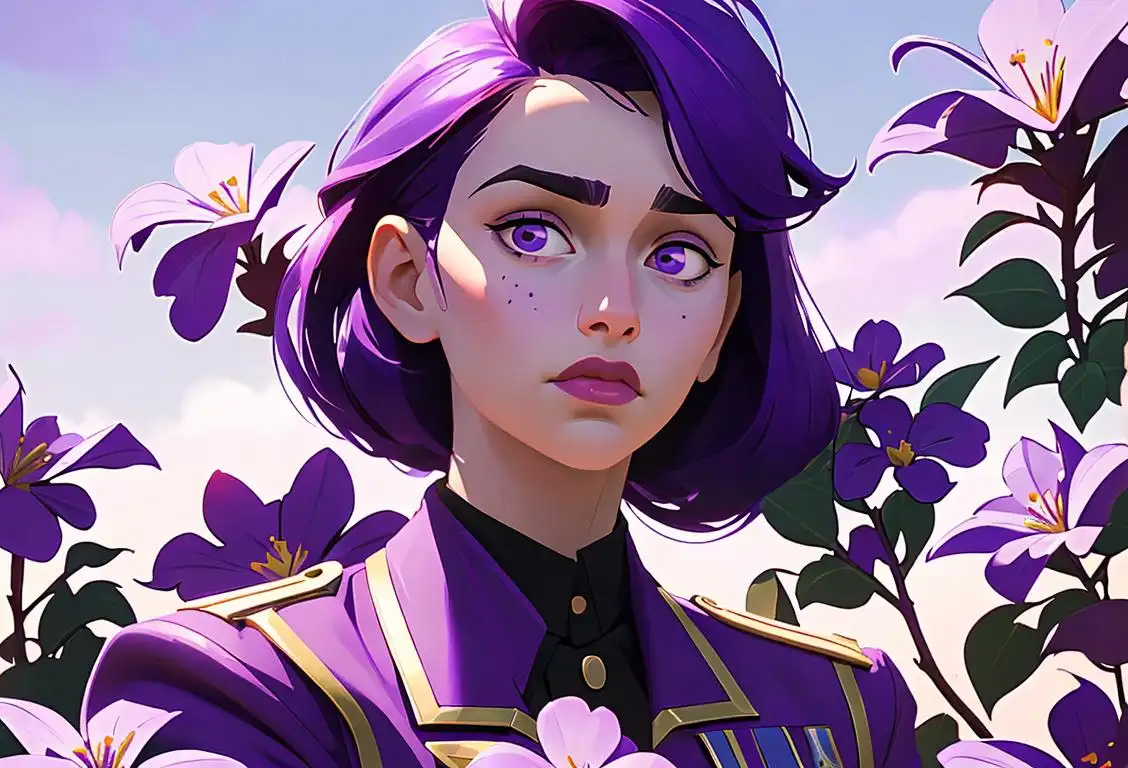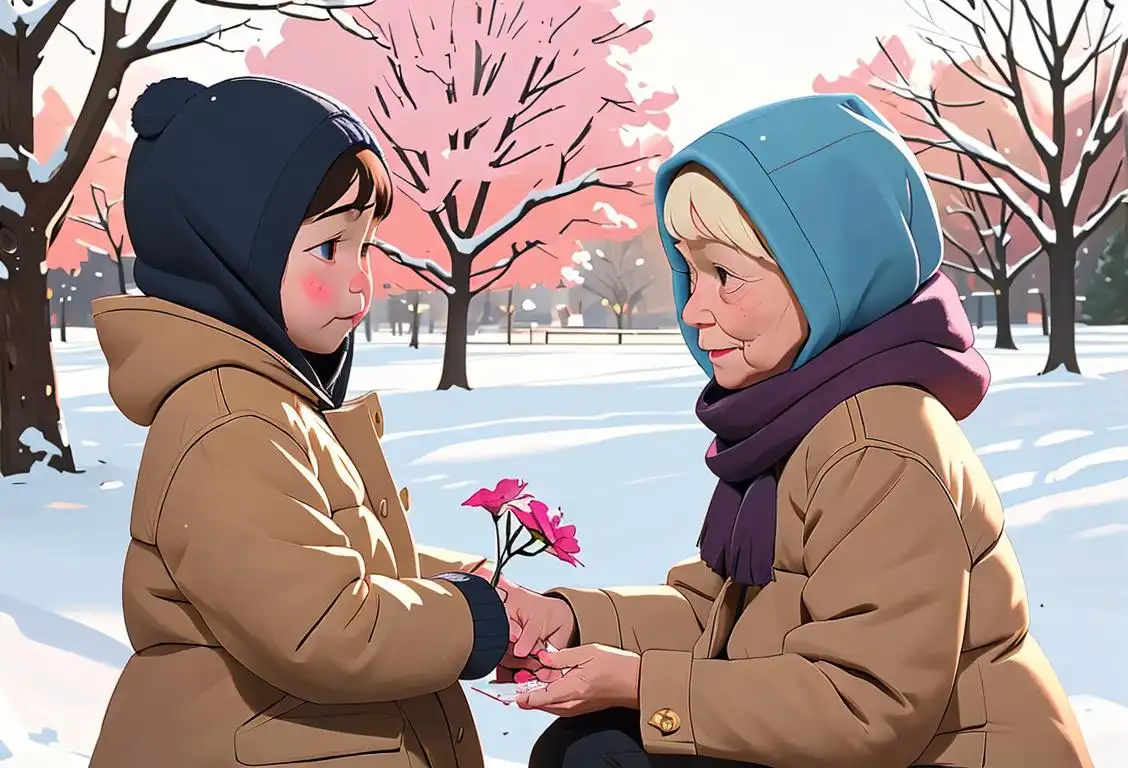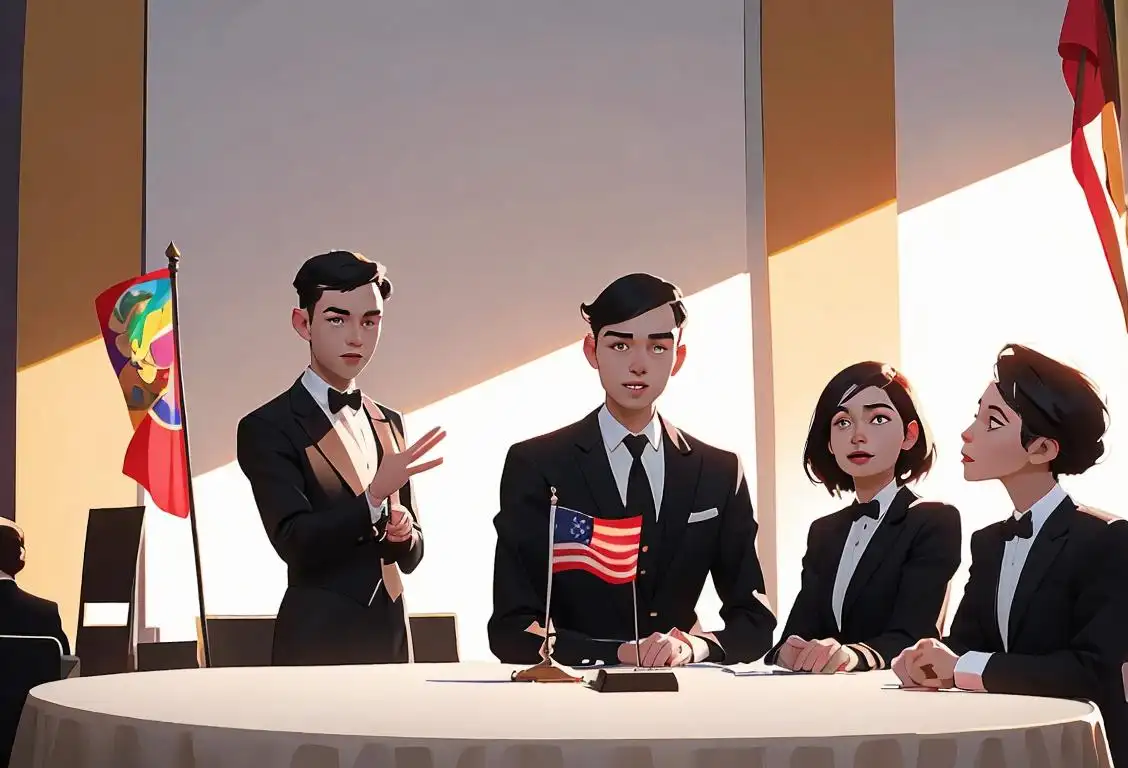National Code Talkers Day

Hey there! Welcome to the fascinating world of National Code Talkers Day. Prepare yourself for an article packed with intriguing information, fun facts, and a dash of humor. So grab your virtual popcorn, sit back, and let's dive into the internet history of this special day!
When is Code Talkers Day?
It's national code talkers day on the 14th August.
The Internet History of National Code Talkers Day
Let's take a trip down memory lane to learn how National Code Talkers Day came to be celebrated. This day is dedicated to honoring the brave Native American veterans who served as code talkers in the United States military during World War I and World War II.
These extraordinary individuals played a vital role in securing sensitive military communications by transmitting coded messages in their native languages, which the enemy forces couldn't decipher. Navajo, Choctaw, Comanche, and other Native American languages were used as code, creating an encryption system that proved unbreakable to enemy code-breakers.
The idea of using Native American languages as code first emerged during World War I, but it gained significant momentum during World War II. The code developed by the Native American code talkers became a crucial element of military strategy, helping the U.S. forces achieve decisive victories in various battles and campaigns.
How National Code Talkers Day Gained Internet Fame
While the official declaration of National Code Talkers Day by the U.S. government has immense historical importance, its internet fame is a relatively recent development. Thanks to its significance and the desire to honor and preserve the legacies of the code talkers, the internet community has wholeheartedly embraced this special day.
Social media platforms, websites, and online communities have played a pivotal role in spreading awareness about National Code Talkers Day. People use hashtags like #CodeTalkersDay and #HonoringOurHeroes to share stories, photos, and tributes to the code talkers. Online discussions often delve into the incredible contributions made by these unsung heroes and the impact they had on military history.
The internet is also a treasure trove of resources, providing access to documentaries, articles, and educational materials about the code talkers. It has become a virtual hub for connecting with fellow history enthusiasts and engaging in thought-provoking conversations.
History behind the term 'Code Talkers'
1917
Development of Native American language code
In 1917, during World War I, Native American soldiers from the Choctaw tribe serving in the U.S. Army began using their native language as an unbreakable code. This code was used to transmit sensitive military information, and its success inspired the development of code talking strategies in later conflicts.
1942
Creation of the Navajo Code Talkers
In 1942, the United States Marine Corps recruited and trained the first group of Navajo Native Americans to serve as code talkers. The Navajo language was chosen due to its complexity, lack of written form, and its unlikely chance of being understood by the enemy. These code talkers played a crucial role in the Pacific Theater of World War II, using their language to communicate vital messages in a manner that remained indecipherable to the Japanese forces.
1945
Official recognition and honors
In 1945, the code talkers' contributions and the significance of their role in protecting sensitive information were officially recognized. The Navajo code talkers were commended for their achievement in developing and implementing an unbreakable code, which played a significant part in the Allied victory. They were awarded numerous medals and accolades, including the Congressional Gold Medal, and their efforts became a source of pride for the Navajo Nation and the larger Native American community.
1982
Declassification of the code
It was not until 1982, nearly four decades after their service, that the Navajo code talkers' contributions were declassified. The code developed and utilized by the Navajo code talkers remained a closely guarded secret for many years, as the U.S. military recognized its continued strategic value. The declassification allowed the public to learn about the remarkable achievements of these Native American heroes and their invaluable service to their country.
2000
National recognition and establishment of National Code Talkers Day
In 2000, the U.S. Congress designated August 14th as National Navajo Code Talkers Day to honor the dedication and bravery of the Navajo code talkers. This day serves as an annual reminder of their exceptional contributions during World War II and subsequent conflicts. It also acknowledges the significance of indigenous languages and cultures in maintaining national security.
Did you know?
Did you know that the code talkers' encryption was so effective that it remained classified for several years after World War II? Their contributions remained unknown to the general public until the U.S. government officially declassified the code talkers' operations in 1968!Tagged
awareness fun historyFirst identified
14th August 2016Most mentioned on
14th August 2016Total mentions
167Other days
Purple Heart Day
Bourbon Day
Teacher Appreciation Day
Random Acts Of Kindness Day
Former Prisoner Of War Recognition Day
Vodka Day
Memorial Day
Liberation Day
Convention Day
Flag Of Canada Day









